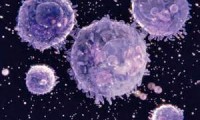-
Gilead Sciences to Acquire Cell Design Labs for $567 Million
- Source: qc.nasdaq
- 429
- December 11, 2017
-
Obsidian Therapeutics Announces $49.5 Million Series A Financing to Develop Controllable Cell and Gene Therapy Products
- Source: Businesswire
- 557
- December 8, 2017
-
Gottlieb Says Faster Cancer Drug Approvals Coming for Secondary Indications
- Source: raps.org
- 686
- December 4, 2017
-
Amgen pulls ahead in sprint towards CGRP approval with promising PhIII migraine data
- Source: Endpts
- 511
- December 1, 2017
-
Stanford, NCI Researchers Discover New CAR-T Target With Early Study Data
- Source: biospace
- 572
- November 22, 2017
-
China’s Import and Export Report of Antineoplastic Drugs
- Source: Ddu
- 1,498
- November 3, 2017
-
Oral Drug Beats Interferon in First Pediatric MS Trial
- Source: medpagetoday
- 649
- October 30, 2017
-
China’s Cardiovascular Drugs Import and Export Report
- Source: Ddu
- 1,548
- October 19, 2017
-
FDA Okays Another CAR T-Cell Therapy
- Source: medpagetoday
- 744
- October 19, 2017
your submission has already been received.
OK
Subscribe
Please enter a valid Email address!
Submit
The most relevant industry news & insight will be sent to you every two weeks.













